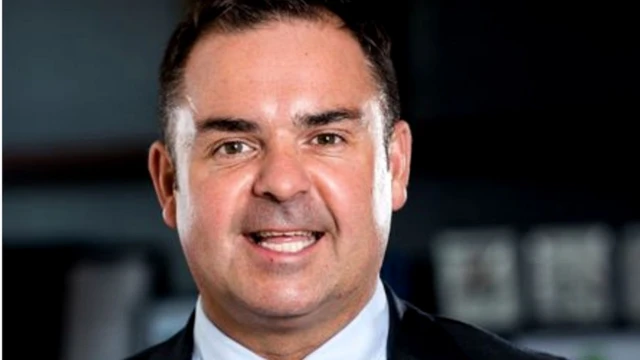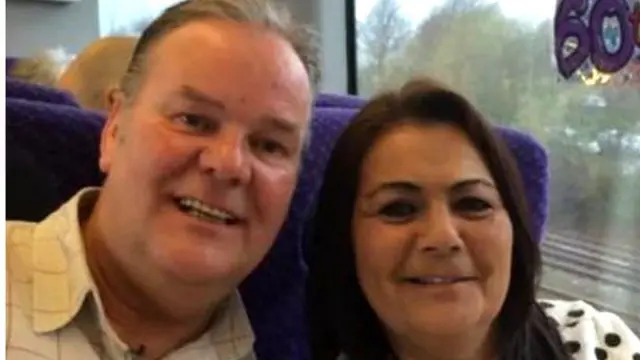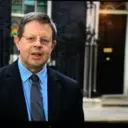That's it from uspublished at 18:56 BST 14 May 2021
Thanks for tuning into today's live updates, which were written by George Bowden, Jennifer Meierhans and Justin Parkinson.
They were edited by James Clarke, Vanessa Barford and Hazel Shearing.
If the Indian Covid variant is significantly more transmissible, we could face hard choices about restrictions, Boris Johnson says
Remaining second doses to over-50s and those who are vulnerable will be accelerated, the PM tells a Downing St briefing
The variant will not affect the easing of restrictions due on Monday but could impact on changes planned in June, he adds
The PM says there will be better information on the variant in a couple of weeks and we "could still be on the right track"
England's chief medical officer Professor Chris Whitty says there is no doubt UK cases of the Indian variant are up
Glasgow and Moray will remain under current restrictions for at least another week, First Minister Nicola Sturgeon says
The rest of mainland Scotland will see an easing of lockdown next week
Wales will move to alert level two of restrictions on Monday, meaning more indoor hospitality can reopen
British tourists will be allowed to enter Portugal from Monday, the Portuguese government confirms
The UK records another 17 deaths within 28 days of a positive test
Edited by Hazel Shearing
Thanks for tuning into today's live updates, which were written by George Bowden, Jennifer Meierhans and Justin Parkinson.
They were edited by James Clarke, Vanessa Barford and Hazel Shearing.
It's been a busy day, with briefings from the prime minister and the first ministers of Scotland and Wales. All three addressed measures to tackle rising cases of the Indian variant.
Here's the latest from the UK:
And from the rest of the world:
Missed this evening's briefing? Here's what you need to know:
You can read our full story here.
 Image source, McGills
Image source, McGillsBefore Christmas, Graeme Carling didn't know anyone who had caught Covid. But within the space of less than an hour one evening in January, the virus changed his and his family's lives forever.
The CEO of investment company United Capital has told the BBC how he lost his mother and father to Covid within an hour.
At the start of the year, his mother, Margaret, died three weeks after contracting coronavirus. As he left the hospice where she'd slipped away, he got a phone call about his father, Graeme senior.
"They said he was doing okay, the oxygen was working, he did need it but they would have liked to have seen more progress," he said.
 Image source, Carling family
Image source, Carling familyMargaret was 65 and her husband Graeme was 66. They were married for 47 years.
By the time Graeme was driving home with his wife Leanne, he got another call.
"The doctor was in a distressed state because I had just spoken to her 15 minutes before and by the time she had gone back to the ward, my dad had passed also," he said.
"It was so surreal. I was in complete shock."
You can read Graeme's story here.
 James Gallagher
James Gallagher
Health and science correspondent, BBC News
The scientific advisory group for emergencies (SAGE) says is highly likely the variant that emerged in India is more transmissible than the Kent variant and that it is a "realistic possibility that it is as much as 50% more transmissible".
It adds there are "plausible biological reasons" as to why some of the mutations present could make this variant more transmissible.
Boris Johnson is asked whether easing restrictions in England from next Monday might one day be seen as a "big mistake".
The PM replies that the position is "different" because of better knowledge than before about Covid, and better testing. He adds that "on balance" it's right to proceed, given "low numbers" of infections but the government remains "very alive" to changes in the data.
On foreign travel, people going abroad will be subject to appropriate tests, he says. He adds that he doubts the government's list of permitted destinations will be added to "very rapidly".
Ministers "take nothing off the table" in doing what is necessary to keep people safe, Johnson says.
That ends today's Downing Street press conference.
Sam Coates from Sky says the fourth test for the next step of the lockdown to go ahead is that there can't be variants of concern changing the assessment. But he asks given cases of the Indian variant have almost tripled in the last week how can you say you've passed that test?
Johnson says: "We are concerned about this variant...and we do think it certainly may cause disruption to our attempts to continue down the roadmap but it doesn't change the assessment to step three."
"If you look at the numbers, even in Bolton you're not seeing a significant increase in hospitalisations and the overall numbers across the country remain low so they're not changing the assessment at present."
Prof Whitty says we are broadly in the same territory with regards to the four tests.
The thing that has changed is the "very clear view" that the Indian variant is more transmissible. "We expect over time this variant will overtake and come to dominate in the UK in the way that the Kent variant did," he says.
We need some time to gather the data but if it is a lot more transmissible that would imply we could have a really significant surge, Whitty says.
We also do not know what impact the vaccines will have in practice, he says.
Asked by Hugo Gye from the i newspaper about the impact of prioritising second doses in England, Prof Whitty says the move will not lead to a delay in younger people getting their first jabs.
He says that is because the JCVI's recommendation is that most people under the age of 40 will be vaccinated with the Pfizer or Moderna vaccines, "whereas the revaccination programme is largely at this point" with AstraZeneca vaccines.
"This should not lead to significant delays, we don't have that trade off," he says.
He adds that there is still a desire to "maintain a slightly longer gap" of eight weeks between doses because there are "some advantages to that".
The PM is asked how long any delay beyond 21 June restrictions could last.
He replies that he can't speculate and there will be better information on the new variant in a couple of weeks.
Boris Johnson also says it's possible we "could still be on the right track".
 Reality Check
Reality Check
Boris Johnson has been asked about whether it was a mistake not to close the border with India sooner.
The government announced India would be added to the travel ban red list on 19 April, but the restrictions did not come into force until 23 April. Neighbouring Pakistan and Bangladesh were added to the red list two weeks earlier.
Figures published yesterday showed that the number of cases of the new variant of Covid-19 first identified in India, which has now been designated as a variant of concern, had risen from 520 to 1,313 in the past week, external.
The World Health Organization said, external the India variant appeared to have a higher rate of transmission and that there was preliminary evidence suggesting some vaccines may be less effective against it.
You can read more about why India wasn’t added to the redlist sooner here.
The PM is asked whether people planning to travel to visit family in areas where there have been spikes of the Indian variant should still go - and whether they should they stay overnight.
"I do think it's important that in respect to the areas where we are seeing these spikes... given the caution that I think we have to exercise with this new variant, the risk of extra transmissibility, I would urge people just to think twice about that," he says.
He says he wants people in those areas to recognise that there is an extra risk and a "threat of disruption to progress" and asks them to "exercise their discretion".
Josh from Corby asks when under 30s can expect to receive the Covid vaccine?
Prof Chris Whitty says the vaccine is making a rapid and steady progression through the age ranges starting with the oldest people.
This is because risk is very strongly correlated with age, he says.
"We've actually got to the point where 38 and 39s are having their jabs and this will steadily move down over the next weeks," he says.
He says the goal is for everybody to have their first vaccine by the end of July.
There is now an aim to accelerate to the point where people have their second vaccination after eight weeks instead of 12 weeks. This is because people who have a second vaccine will not only have greater protection against the original variant but also the new variant.

 Iain Watson
Iain Watson
Political correspondent
With overall cases and hospitalisations low, the Conservative MPs in the Covid Recovery Group – who are concerned about the economic effects of the lockdowns – will be hugely concerned that the prime minister is not committing himself to "freedom day" on 21 June in England.
This is when the roadmap envisaged social distancing measures being lifted. But if the Indian variant is very much more transmissible, Boris Johnson has warned of difficult choices ahead.
Prof Chris Whitty says that, if vaccines lose some "efficacy", this tends to happen first with those who show mild symptoms rather than those likely to suffer most from the virus.
That's why those in more vulnerable groups are being prioritised, he adds. There are "very strong aims" to increase jabs in areas affected by the new variant, Prof Whitty says.
The PM says Colonel Russell Miller, commander army HQ north west, is being deployed to support local leaders in managing the response to the Indian variant on the ground.
The response will include surge testing, mobile tesing units and the army will be on the streets handing out tests.
There will be "targeted new activity" in Bolton and Blackburn to accelerate the vaccine take-up, including longer opening hours at vaccination sites.
"We are going to have to live with this new variant of the virus for some time," Johnson says.

 Iain Watson
Iain Watson
Political correspondent
Boris Johnson was under huge political pressure in particular from his own side of the Commons not delay the further lifting of restrictions on Monday.
And the Conservative leader of Bolton council said imposing local restrictions could be counter productive – creating an incentive to move around and potentially spread the new variant further.
But his policy now contrasts with the Scottish government which isn’t easing restrictions in Glasgow and Moray due to case rates, so opposition voices may soon urge greater caution in England too.
The prime minister is also likely to be asked whether he added India swiftly enough to the ‘red list’ which would have meant hotel quarantine for all arrivals from there.
On to media questions now. BBC medical editor Fergus Walsh asks how likely it is that the final unlocking of restrictions in England will happen on 21 June.
Boris Johnson says he can't say "for certain". Numbers of infections remain "low" across the country, he adds, and the situation is different from last year because of vaccines.
People will have to "wait and see" whether the new variant is more transmissible and wait for more evidence that vaccines have cut risks of hospitalisations and deaths.
Responding to a question from a member of the public, Mr Johnson says the government would "implement further restrictions immediately" as soon as it saw "there was a risk of really serious increase of hospitalisations" that could overwhelm the NHS.
Chris Whitty says there is no doubt UK cases of the Indian variant are up, and that there's "confidence" it's "more transmissible" than existing strains.
He adds that scientists are working to find out how much more transmissible it is.
It's "quite widely seeded" in places other than Bolton, but there's not a greater increase in rates among over-60s than other age groups, Prof Whitty adds.
Professor Chris Whitty, England's Chief Medical Officer, says the number of people testing positive for Covid in the UK is going "steadily" downwards, as is the number of people in hospital.
Deaths of people following a positive Covid test are also down, he adds.